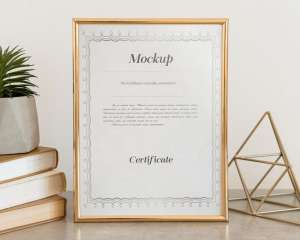What's so special about online courses? They are actually super important nowadays because they're so easy to access and fit into any schedule. They don't care where you live or what time you're available. They help you keep learning and developing skills, which is vital in a world that's always changing. Thanks to COVID-19, online education has really taken off. It's a cheap and flexible way to learn, and it uses cool tech to make learning even better. It's perfect for people all over the world who want to learn on their own terms.
Creating Methodology
The success of an online course really depends on more than just how good the content is. It also has a lot to do with how the course is set up, taught, and supported. The most important aspect for students is receiving feedback from their mentors. This is because they might face difficulties while taking the course or completing assignments. Getting useful advice or online homework help from a mentor is invaluable for students and adds trust to the course. Having a solid methodology makes students more engaged and help them remember stuff better. We've got a simple guide to help you create a killer methodology for your online course. Check it out.
1. Figuring out what you need
This might be obvious but many people really miss this step. So, when you're starting to develop a course, do a thorough needs analysis. First, figure out who you want to reach with your online course. There is not much to do — just figure out:
- who they are
- how old they are
- what kind of education they go
- what they already know about the course stuff.
Also, it's good to know if they're used to using online learning platforms.
2. Planning what to post
Once you've figured out who you're talking to and what you want them to learn, the next thing is to carefully plan what you're gonna teach. Just make sure to organise the content into modules or units that make sense and flow well with the overall goals of the course. By breaking down the content, students can easily see what they'll be learning and the skills they'll gain.
3. Instructional design
A solid instructional design is key to making an online course rock. Come up with a solid plan for how we're gonna teach, test, and organise the course material. You could try using active learning techniques like:
- discussions
- group projects
- case studies.
4. Picking the right technology
Pick a learning management system (LMS) or course platform that works well for your content and audience. Make sure the platform has tools that make it easy to talk, work together, and do assessments. These can be:
- discussion forums
- video calls
- assessment platforms.
The tech you pick should totally support the instructional design and objectives you've outlined.
5. Making material
Now it's time to start making some interesting course materials. Create awesome content that includes:
- videos
- animations
- infographics
- interactive quizzes.
Make sure the content is organised well, so it's easy for learners to find their way around and understand.
6. Grading and checking
Create quizzes and tests to check how well students are getting the material as we go along, and also have big tests at the end to see how they did overall. Make sure you use different ways to check how well people are doing in your class. You can:
- do quizzes
- give out assignments
- have students grade each other's work
- let them assess themselves.
This way, everyone can learn in a way that works best for them.
Marketing and Promotion
Finally, you gotta have e-learning marketing and promotion to get and keep students.
Market and sell your online course in a way that really connects with your audience and makes a big impact.
Make it SEO-friendly
Use some SEO tricks to help more people find your course website. If you wanna rank higher in search engine results, make sure you:
- use relevant keywords
- write catchy meta descriptions
- speed up your page loading time.
That way, you'll get more visibility online.
Use Social Media
Use social media to promote your course. Make great content, share interesting stuff about your course topic, and chat with your people. Just slap on some hashtags and join some groups to get your message out to more people.
Email Marketing
Get a bunch of emails from potential students and send them cool emails to keep them interested. Share awesome content, give some valuable insights, and give sneak peeks of your course to get people interested.
Give Away Free Stuff
Hook people up with freebies like:
- e-books
- webinars
- mini-courses.
This can totally help build trust and get more students to sign up.
Landing Pages and Sales Funnels
Create catchy landing pages that totally explain how your course can help you out. Also, think about sales funnels that help students make up their minds, from first hearing about your school to actually signing up.
Final Thoughts
No doubt, online courses can be very effective you approach them responsibly. Of course, it's not that easy to create a product of superior quality considering how saturated the market is. But you can definitely do it. Follow the tips given in the article and make your sales grow.






